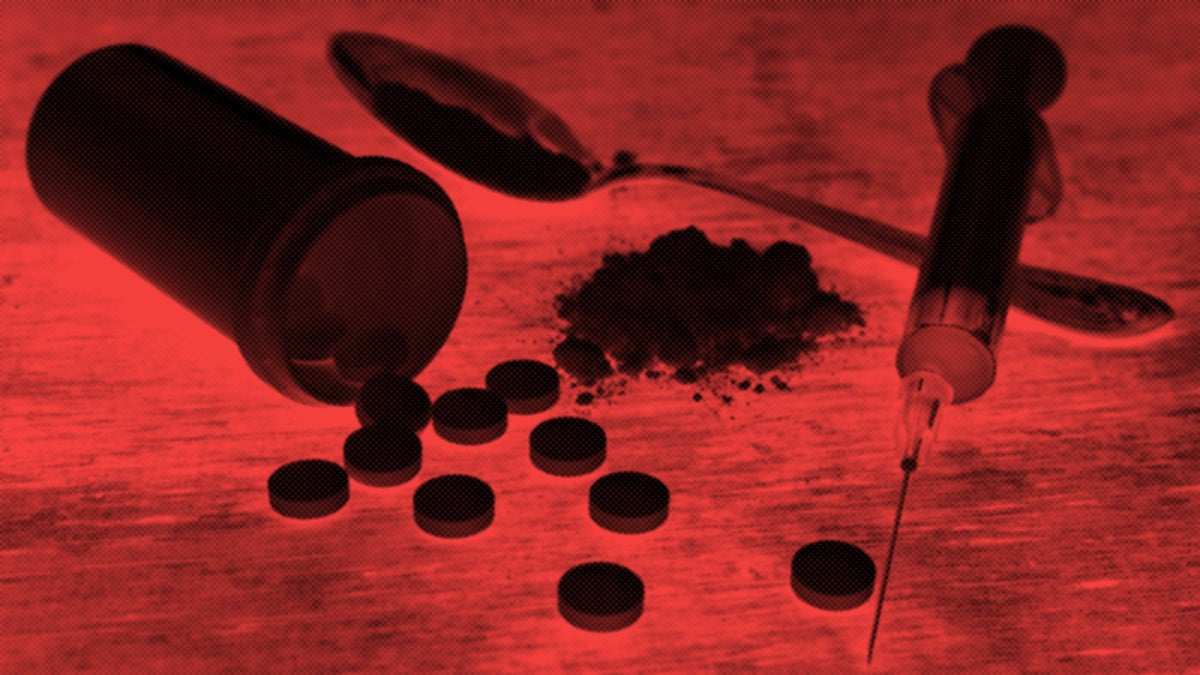New Jersey wants to know if your high school kid is addicted

(Alan Tu/Big Stock)
New Jersey’s high school students would receive annual addiction-risk assessments under a new proposal designed to reduce substance-use disorders among young people and improve their chances for a healthy, productive life as adults.
Sen. Joseph Vitale (D-Middlesex), a longtime champion of efforts to curb addiction and limit the harm associated with drug use, introduced a bill Monday that would expand the use of an evidence-based screening and referral program now in place at some healthcare clinics to all public and private high schools statewide. The process is already used in several other states including Massachusetts, staff said.
Hours later, Vitale announced he would also partner with Senate President Steve Sweeney (D-Gloucester) and Sen. Tom Kean (R-Union) to craft legislation to advance several plans Gov. Chris Christie outlined recently to address the growing opioid epidemic. Christie devoted some two-thirds of his State of the State address earlier this month to New Jersey’s addiction crisis.
Under a copy of the school-screening bill provided to NJ Spotlight, a school nurse, psychologist, or other trained staff member would use a series of written or verbal questions to assess if a student is using drugs, or is at risk of experimenting, and could intervene and refer them for additional help, if needed. All conversations would be kept confidential, except in a medical emergency, and answers could not be used against students by law enforcement or school officials. It does not call for a blood test or other physical exam and parents, who would be notified of the policy in advance, could opt out for any reason, Vitale said.
“Research tells us that the vast majority of individuals who develop a substance-use disorder began using before they turned 18,” Vitale said Monday, noting that nearly one-third of high school students reported being offered, given, or sold illegal drugs on school grounds. “Screening for risk factors or red flags during the high school years will provide an opportunity for early intervention and might help to prevent addiction before it even begins.”
Some 28,000 New Jersey residents sought treatment for addiction in 2015, while thousands more were wait-listed or turned away — and 1,600 died from the disease, a 22 percent increase over 2014 mortality figures.
The school-screening bill is the latest in a recent flurry of proposals to address New Jersey’s growing drug addiction issue. In his annual message, Christie outlined proposals to reduce the flow of opioid-based drugs by limiting first-time prescriptions to five pills only and expand access to treatment by insisting insurance companies cover six months of treatment, inpatient or out. While he was generally praised for this focus, experts also questioned how these specific proposals could be effectively implemented.
Last week Christie signed an executive order reiterating the policy goals outlined in his message and late Monday his office announced that he gave the state Legislature draft language for a bill that would ensure patients aren’t denied drug treatment for insurance reasons. According to a press release — the draft text was not yet available, a spokesman said — the measure would protect patients against “onerous” out-of-pocket expenses, cover effective medication-assisted outpatient treatments without delays, and ensure they can get six months of addiction care without any red tape.
“When a person who is in the throes of a deadly drug addiction realizes he or she needs help, they should not be blocked at the treatment center doors because their insurance carrier requires a prior evaluation that could take weeks to complete,” Christie said.
Vitale said he will review the language provided by the governor’s office and see if “other priorities” of the Legislature can also be addressed in the same bill. He suggested it could also be used to require prescribers to discuss the potential dangers of opiates with their patients — something doctors have opposed in the past. (The governor signed a bill last year that calls for this education when the prescription was for minors under age 18, but Assembly leaders declined to include adults.)
“The bill will take a comprehensive approach and will address key elements mentioned in the governor’s State of the State address,” Vitale said. “We have to commit to a dedicated and sustained effort to fight New Jersey’s number one public health crisis, and this bill will help move us in the right direction.”
The high school addiction-screening bill could help address the problem before it begins, Vitale said. The Screening, Brief Intervention, and Referral to Treatment program – SBIRT – was developed by the federal Substance Abuse and Mental Health Services Administration to detect potential warning signs of addiction, including personal issues like risky behavior, susceptibility to negative peer pressure, lying, stealing or other antisocial behavior, or community concerns like poverty, availability of drugs, or discrimination.
The program has been used effectively with adults in the Trenton area, thanks to a five-year $7.5 million pilot funded by SAMHSA in conjunction with the state Department of Human Service’s Division of Mental Health and Addiction Services. Vitale said it has also been working well in facilities in South Jersey. Under the bill, DMHAS officials would work with leaders at the state Department of Education to craft the proposal and train the nurses and other screeners.
_________________________________________
NJ Spotlight, an independent online news service on issues critical to New Jersey, makes its in-depth reporting available to NewsWorks.
WHYY is your source for fact-based, in-depth journalism and information. As a nonprofit organization, we rely on financial support from readers like you. Please give today.




